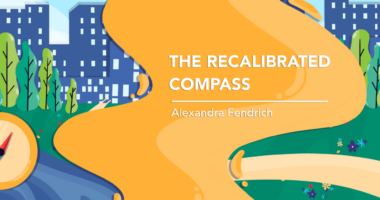3 Reasons to Be Thankful for Your AS Experience

Following my ankylosing spondylitis (AS) diagnosis, I thought the world had ended. I felt awful. I knew I was doomed to get sicker, and I believed I’d have limited control over my situation. Frankly, my perspective couldn’t have been worse. That said, it’s entirely natural to mourn, grieve, and move between the phases of denial, anger, resentment, and acceptance. I want my spine to fuse, and I want to be tired and cranky for the rest my life, said no one ever.
The fact is, your body is your body. It’s the only one you’ve got. Your spine is the root and core of your being, so it’s yours to keep and love and cherish — even if it feels like it’s made of tin. You can be the Tin Man and also have gratitude for the experience.
Here’s what I learned about having AS, even on those horrifically painful, difficult days.
You are resilient
You may be part of a Facebook group for AS warriors, but in your everyday life, how many people do you know who have to fight on a daily basis to stand up or sleep or work? How many people do you know who are forced to push through pain, fatigue, and identity loss? How many times have you had to bounce back from a flare-up, change medicine, or rewire your lifestyle to survive? How many health insurance phone calls have you had? What if you don’t even have insurance? That’s no small change. This is all called resilience, and it’s a powerful thing to tap into and hone.
You are empowered
One of the most consistent things I see every single day as a part of a digital AS community and wider advocacy groups is that people with AS are diligent researchers. We want to be knowledgeable and in control of our bodies, not only because this enables us to get better, but also because it allows us to advocate for ourselves when even doctors seem to disregard or belittle our symptoms. I’ve learned so much about the immune system, its relationship to gut health, and the systemic results of inflammation. I now am so much more capable of speaking up for myself and others.
Holistic wellness investment
Most of the people fighting AS know that medicine isn’t the only answer. It shouldn’t be the only answer. AS is a tricky disease; it requires a lot of maintenance that is antithetical to other diseases.
For example, where others need to rest, AS patients must keep moving. Our diets, stress management techniques, and sleeping patterns all matter, as AS is so greatly linked to stress and gut health. Many with AS integrate a holistic approach into their entire life, which can keep them healthier for much, much longer.
If you haven’t started making holistic changes, that’s OK. You can start by eating an anti-inflammatory diet, stretching a few times per day, being aware of your posture, managing your stress, and sleeping regularly. (Click all of those links. They will help you!).
Remember how strong you are. It can hard to see, but you’ve gained a lot by living with AS. Reframing how you see yourself—and what you can take away from the experience of living with AS —can be seriously empowering.
***
Note: Ankylosing Spondylitis News is strictly a news and information website about the disease. It does not provide medical advice, diagnosis, or treatment. This content is not intended to be a substitute for professional medical advice, diagnosis, or treatment. Always seek the advice of your physician or other qualified health provider with any questions you may have regarding a medical condition. Never disregard professional medical advice or delay in seeking it because of something you have read on this website. The opinions expressed in this column are not those of Ankylosing Spondylitis News, or its parent company, Bionews Services, and are intended to spark discussion about issues pertaining to ankylosing spondylitis.







Leave a comment
Fill in the required fields to post. Your email address will not be published.